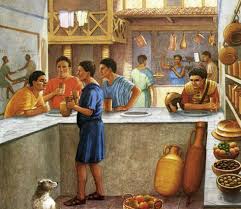I'd like to talk about female Christian mystics - women who *really* bucked norms of the era.

@BritishLibrary has a good overview. bl.uk/the-middle-age…

Lower-born women began to enter the beguinages I told you about yesterday.

Placed in a monastery as a small child with another, older girl, she was essentially shut off from the world for two decades. It was then that she began an amazing journey.

With the help of a scribe, she recorded these as a book, 'Scivias' ('Know'). Here's an illustration from it. She would go on to write two more.


Hildegard died in 1179. However, it took until 2012 to get her canonzied as a saint.
There, working with another mystic, she wrote a text 'Seven Ways of Divine Love'.

She is the very first writer in what would become known as the Dutch language.

She wrote 'The Flowing Light', which not only detailed visions, but took potshots at the venality & corruption of the Church.

Many of these female Christian mystics said and did things that others simply couldn't get away with.

Her book posited that souls can join completely with God, circumventing the strictures of the Church. Of course, this was not on.

There's also another dark side to many of these female mystics, one that is increasingly being studied and debated...

The famed Catherine of Siena was known to suffer 'holy anorexia', partaking only in the Eucharist for weeks.
More than a few female mystics died very young.


Their struggle, their victories and their sorrows resound through time.

Look up people like Julian of Norwich, Getrude the Great, Bridget of Sweden or Margery Kempe.
I think you'll be glad you did. FIN.























